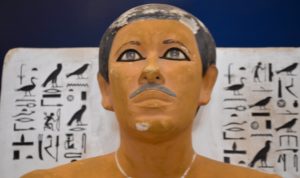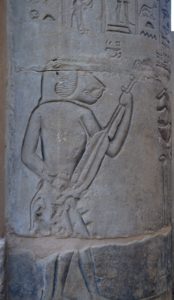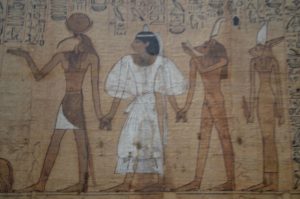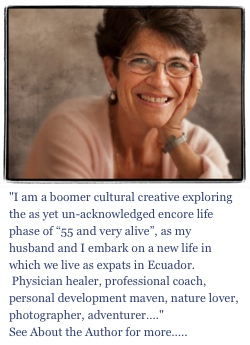
In Cuenca, we are blessed with a variety of therapeutic practitioners and modalities that offer us different ways of addressing issues of health and well-being. Recently, there was a contentious thread on an expat forum which was triggered by an assault on the techniques of Ayurvedic medicine and the credentials of a local Ayurvedic practitioner.
Unfortunately there is still a very strong bias against and fear of approaches that have not been sanctioned as “standard of care” by the mainstream medical establishment. It’s too easy to make judgments about something being “quackery” if one doesn’t know or understand the paradigm of integrative medicine, which is based on using the best of what’s available on a spectrum of care.
Being an M.D. myself and having both practiced and used many non-conventional healing modalities for 45 years, I want to provide a framework for how to think about why and when to avail oneself of the wealth of healing systems that offer things that conventional Western medicine often does not.
 People are understandably wary of non-conventional therapies when there’s a lack of substantial data supporting their efficacy and the potential unknown risks (albeit some of those cited are often un-substantiated or rare). To provide some context, let me note a Johns Hopkins study that found iatrogenic or medical errors to be the third leading cause of death, not to mention the negative side effects of many drugs (https://hub.jhu.edu/2016/05/03/medical-errors-third-leading-cause-of-death/.) That being said, of course one ideally wants a base of research data that support the alleged benefits of any treatment, whether it’s conventional or non-conventional treatments. The sad reality is there is little funding for non-conventional approaches and so, often there isn’t a substantial data base.
People are understandably wary of non-conventional therapies when there’s a lack of substantial data supporting their efficacy and the potential unknown risks (albeit some of those cited are often un-substantiated or rare). To provide some context, let me note a Johns Hopkins study that found iatrogenic or medical errors to be the third leading cause of death, not to mention the negative side effects of many drugs (https://hub.jhu.edu/2016/05/03/medical-errors-third-leading-cause-of-death/.) That being said, of course one ideally wants a base of research data that support the alleged benefits of any treatment, whether it’s conventional or non-conventional treatments. The sad reality is there is little funding for non-conventional approaches and so, often there isn’t a substantial data base.
However, ancient healing systems such as Chinese medicine and Ayurvedic medicine have thousands of years of practice and application providing validation for their efficacy with different ways of diagnosing disorders; substantial knowledge of the medicinal properties of herbs and plants; and often the ability to detect imbalances before they reach what would be considered clinically treatable in Western medicine.
The fallacy of relying solely on data as the basis for whether you want to try a particular treatment is that randomized controlled trials, considered the gold standard in medicine, look at groups. These (ideally) large groups are measured as N= some large number which correlates to validity and reliability in the results. However, and this is a big however, the results aren’t necessarily applicable to any given individual.
Each of us has a unique history comprised of at least five different levels of experience that influence our level of wellness/balance and illness/imbalance: spiritual (relationships with self and other), mental (attitudes and beliefs), emotional, cellular/nutritional, and genomic (encoded in our genetics).
The leading edge of medicine is individualized or personalized medicine, which actually relies on an N=1 model. (https://www.ncbi.nlm.nih.gov/pmc/articles/PMC3118090/.) There simply is no “one size fits all” when it comes to what will work for you. So think of yourself as not having just a physical body but an inter-dependent constellation of mental, emotional, spiritual, nutritional/cellular and genetic dimensions all of which factor into your state of physical health.
The strength of conventional Western Medicine lies in dealing with acute conditions of trauma or illness. It is much less effective in curing or healing chronic conditions. Many chronic conditions can be reversed by activating and supporting the body’s innate healing mechanisms, especially the immune system. The process of healing from the inside out is also based on a foundation of two basic needs and principles: the need to both nourish the body organism and the need to detoxify it on the five levels noted above.
The power and beauty of non-conventional, non-Western medicine lies in its’ ability to mobilize the body’s innate healing mechanisms. If you think of your physiology as the soil of a garden, how fertile or damaged is the soil? Think of non-Western, non-conventional modalities as restoring the soil so that it creates the conditions for healing and regeneration to occur.
Both Chinese and Ayurvedic medicine both offer comprehensive systems for diagnosing and treating imbalance/illness with multiple modalities. And then there are times when using a combination of conventional treatments is necessary and desirable.If you’d like to read more about how Ayurvedic medicine works and some of the documented benefits, here’s a good article: https://draxe.com/ayurvedic-medicine/.
If you have an urgent situation or destabilizing condition, you want to go to an ER. Also in the case of a chronic but life-threatening condition such as cancer, Western medicine helps buy time if for example, you can de-bulk a tumor which reduces the acuity of the condition.
Then when you’ve reduced the acuity and risk, you have time to try a non-invasive, non-toxic approach that catalyzes and supports the body’s innate healing mechanisms. This is actually the more powerful and enduring approach over time.
Using the best of what each has to offer for curing and healing is the promise of Integrative Medicine.

